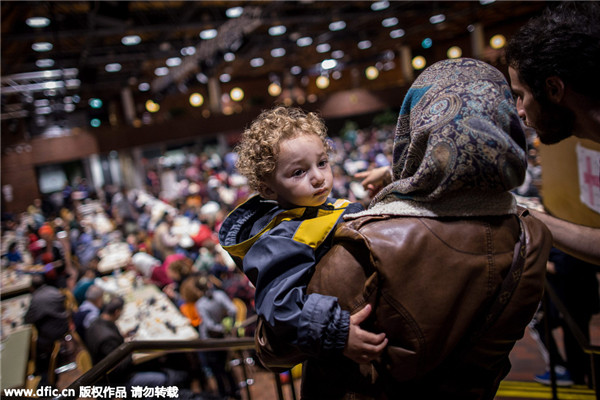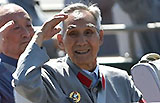Germany re-imposes border controls to slow migrant arrivals
(Agencies) Updated: 2015-09-14 07:29
 |
|
A refugee mother and her child arrive to the Dietrich-Keuning House in Dortmund, Germany, Sept 13, 2015. [Photo/IC] |
Central Europe wary
Central European countries are hostile to European Commission President Jean-Claude Juncker's plan for spreading refugees around the bloc, and reject any suggestion of compulsory quotas.
"We are helping, we are ready to help, but on a voluntary basis," Czech Prime Minister Bohuslav Sobotka said on Sunday. "The quotas won't work."
In neighbouring Slovakia, Interior Minister Robert Kalinak said he would try to block quotas. "They don't make any sense ... and don't solve the crisis in any way," he said in a TV interview.
Poland said it might accept more migrants, but only if the EU secures its external borders; separates those who need help from economic migrants; and allows Warsaw a say in screening them from the point of security.
Meanwhile, the migrants continued to risk all on their journeys. The Greek coastguard said the 34 drowned off the island of Farmakonisi, almost certainly the largest death toll in those waters since the migrant crisis began.
In the space of 90 minutes, a Reuters photographer saw 10 dinghies packed with refugees arriving from Turkey on the Greek island of Lesbos.
Further up the refugee route, 8,500 migrants entered Macedonia from Greece between Saturday evening and Sunday afternoon, the UNHCR said.
Hungarian state TV M1 reported that 8,000-10,000 migrants had crossed into Austria at Hegyeshalom by 6 pm (1600 GMT) and several thousand more were expected by the end of the day.






